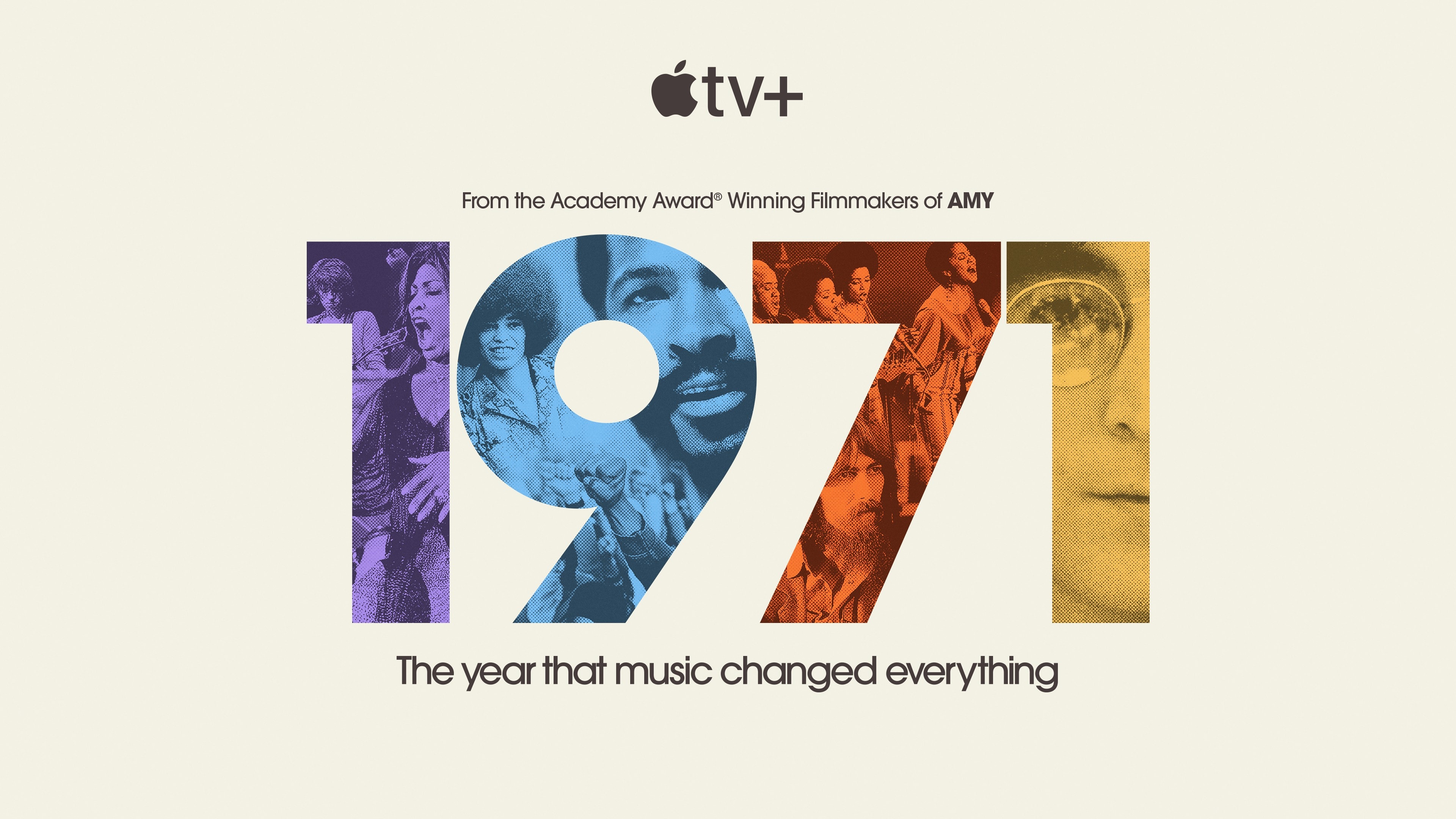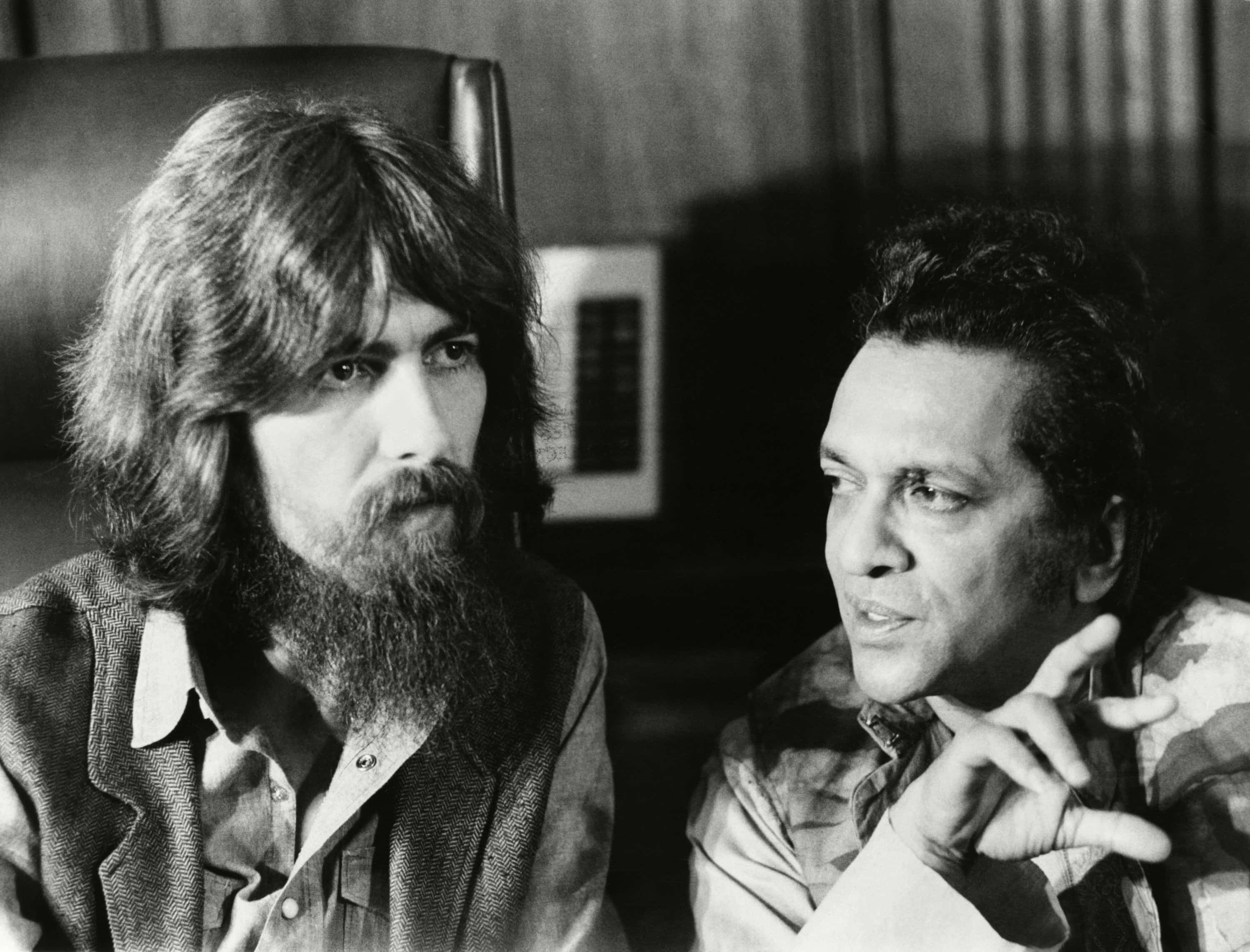With 1971: The Year That Music Changed Everything, Apple TV+ tried to buy itself a Ken Burns-style documentary about the potent cultural impact of rock and soul. Unfortunately, the eight-episode documentary series, which premieres Friday, proves so low-energy it will put you to sleep.
This deceptively “comprehensive” look at a single year in music history proves as scatterbrained and toothless as a school project. The impression it leaves is not that 1971 really changed everything, but that no one is even remotely willing to admit that their favorite bands really aren’t that interesting.
This post contains affiliate links. Cult of Mac may earn a commission when you use our links to buy items.
1971: The Year That Music Changed Everything review
Director Asif Kapadia is one of those filmmakers who I think confuses having no coherent or consistent interests for being a more discerning and careful artist. His perfectly fine documentaries Senna, Diego Maradona and Amy have little in common stylistically and/or thematically beyond a famous dead subject. His fiction hasn’t made much of a splash. And his work on TV varies from the sublime (Mindhunter) to the ridiculous (this).
1971: The Year That Music Changed Everything, admittedly, must be the worst thing he’s ever done (though I haven’t seen his fiction features, though after this I have to admit I’m not exactly encouraged).
Ironically based on the book Never a Dull Moment by David Hepworth, this ambling and extremely dull boomer nostalgia trip serves as a reminder not so much of the power musicians used to have but that personalities of a certain age refuse to believe their favorite bands aren’t still so cool they’re worth watching eat lunch. (Musicians still do possess cultural power, but because this crew won’t listen to contemporary pop music, they don’t know that.)
That may sound like hyperbole, but there’s actually a sequence dedicated to lunch at The Rolling Stones’ house at a French villa. No, nothing happens that day, they just … eat lunch. They’re unspeakably rich, they’re hot, and they’re eating well. Now that’s what I call trenchant journalism!
Jesus Christ, superstar

Photo: Apple TV+
I came of age in the ’00s which, it just so happened, was a boom time for rock ‘n’ roll fetishization.
School of Rock replaced the public school curriculum with Led Zeppelin. Martin Scorsese made a Rolling Stones concert film (two if you count The Departed). Cameron Crowe made Almost Famous. Wes Anderson stuffed his soundtracks with ’60s rock B-sides. Eric Clapton started his guitar festival. George Harrison died in 2001, reigniting Beatle mania. And John Lennon tunes started closing out every movie.
While in college, I was forced to watch the similarly boring The U.S. vs. John Lennon, a documentary that thought nothing of interviewing rabid lunatic G. Gordon Liddy for balance. You could not escape indiscriminate nostalgia for the late ’60s and early ’70s. It was simply everywhere.
I worked in a record store, so the myopia of loving Bob Dylan or John Lennon at the expense of all other music drove me up a wall. I was surrounded by vinyl — studio one dub, prog deep cuts, funk, post-punk, new emo and indie rock, afrobeat — and I just couldn’t believe the people who’d come in week after week to buy records by The Doors and Deep Purple and nothing else.
I suppose it also helped that there was no love for The Beatles and the rest of the rock ‘n’ roll vanguard in my house. No one I knew cried when Lennon was shot. So when this show opens with, and then showcases again and again and again, how important John Lennon is, all I can do is nod impatiently. Yes, sure, and…?
Ch-ch-ch-ch-changes
Every time a piece of text appears on screen in this series, it has the weight of a breathless mic drop.
In 1971 David Bowie went to America for the first time. It is undeniably true that that happened, but, well, who cares? There’s no real sociological underpinning to any of this stuff. The series pays some lip service to the idea that the music, and the causes the musicians supported, remains relevant. But Kapadia is way too seduced by all these pictures and old footage of his favorite artists to do much mining.
It’s meant to be equally compelling that John and Bonnie Raines broke into the CIA office in Media, Pennsylvania, the same night as the Ali-Frazier fight, that Bowie’s career got off to a rocky start, and that George Harrison’s Bangladesh concert was the first time he took center stage.
We get asides about Jesus Christ Superstar, Charles Manson and Kent State, but none of them really mean anything, except as texture. That wouldn’t be so problematic, but the whole show is texture. It plays like a vacation slideshow.
An increasingly unconvincing thesis
The creators act as though by simply titling the show 1971 they’ve done enough thematic groundwork to explain everything that happens next. Unfortunately: “Music, man, it was so good … and it made a difference” isn’t really much of a thesis. And it becomes less convincing with every aimless bit of voiceover and random digression.
Why is Hunter S. Thompson here? Why the episode about the Loud family? Why the Angela Davis arc? The connections to music are tenuous — and they’re only discussed as bullet points anyway. The show consistently spurns deep analysis of any of its myriad topics.
So time and again, it plays a song that was big in ’71, shows you the lyrics like a YouTube video in case you missed how profound they are, and then someone will insist that it was the most important song of the moment in voiceover.
It is never once believable that all of this music had the same impact, or, frankly that all of this music is inherently more interesting than anything that came out in 1972. The show treats Terry Reid and Gil Scott-Heron with equal weight.
Bad vibes

Photo: Apple TV+
The testimonies are all absurdly general, half-remembered through a haze of drug memories and drunken concert trips. For example, Marvin Gaye’s What’s Going On gets the following amazingly astute observations tossed at it.
Jimmy Iovine on the title track: “It’s so seductive, it was a hit!”
Black Panther Billy X. Jennings on the record as a whole: “There was never an album like that dedicated to what was going on.”
I guess it’s supposed to be enough that these guys heard the music when it was new. We get very little sense of what it meant to regular people to hear it at the time because the show only interviews industry guys at length. Meanwhile, the filmmakers don’t talk about the Black Panther Party in nearly enough depth because, well, the political activists didn’t play guitar. And besides, they didn’t traffic in platitudes like John Lennon. (His best one: “To do something is better than not to do something.”)
The refusal to engage the Black Panther Party in more than hopelessly superficial language — 1971 shows the commercials to which “The Revolution Will Not Be Televised” refers — wouldn’t gall so badly if the show didn’t have acres of voiceovers from President Richard Nixon’s crony Alexander Butterfield and a screw at Attica Correctional Facility when George Jackson was murdered. We even hear from Nixon himself! When will “liberal” documentarians learn that it’s OK not to seek the views of the oppressor in a documentary ostensibly about the oppressed?
What else does 1971 leave out?
The show also gives record producer Phil Spector loads of air time, which makes sense because he was there for most of this stuff. But he also was a murderer, which they don’t really go into. (Lennon’s heroin addiction is presumably on the cutting room floor as well.)
1971 is selective-memory history dedicated to an offensively facile view of the era’s culture: It was just better then, man, you had to be there. Well, thanks to the endless money to be made milking nostalgia revolution, I’ve lived enough of this time through archival footage in bad documentaries that it feels like I did.
And frankly? I’m sick of it. This impulse has always been defensive; it’s proof that people who never got over ’70s culture were in fact correct to not engage with anything older than them. Yawn.
I’ve been hearing this argument most of my life, though rarely in less essential a form. I made peace a long time ago with the fact that bands I don’t like and never found all that exciting are responsible for a goodly sum of the pop culture landscape and always will be.
Those are incontrovertible facts. Restating them in 2021 alongside sex education roundtables on public television and footage of Nixon strikes me as a colossal waste of everybody’s time.
1971: The Year That Music Changed Everything does not actually set out to prove anything. Instead, it simply selectively relives the times as they happened. It repeatedly retreats from serious issues, and the various narcotic problems of its subjects, with a rockin’ performance from a band the director likes.
If you wanna hear some good music you’ve definitely heard before enlivened by the occasional rare shot of Sly Stone in his bedroom, knock yourself out. If you want anything else, you’re out of luck.
1971: The Year Music Changed Everything on Apple TV+
1971: The Year Music Changed Everything premieres on May 21.
Rated: TV-MA
Watch on: Apple TV+
Scout Tafoya is a film and TV critic, director and creator of the long-running video essay series The Unloved for RogerEbert.com. He has written for The Village Voice, Film Comment, The Los Angeles Review of Books and Nylon Magazine. He is the director of 25 feature films, and the author of more than 300 video essays, which can be found at Patreon.com/honorszombie.
![1971: The Year That Music Changed Everything is a bloated boomer yawn [Apple TV+ review] The Staples Singers in 1971: The Year That Music Changed Everything](https://www.cultofmac.com/wp-content/uploads/2021/04/Photo_01-1536x1209.jpg)

